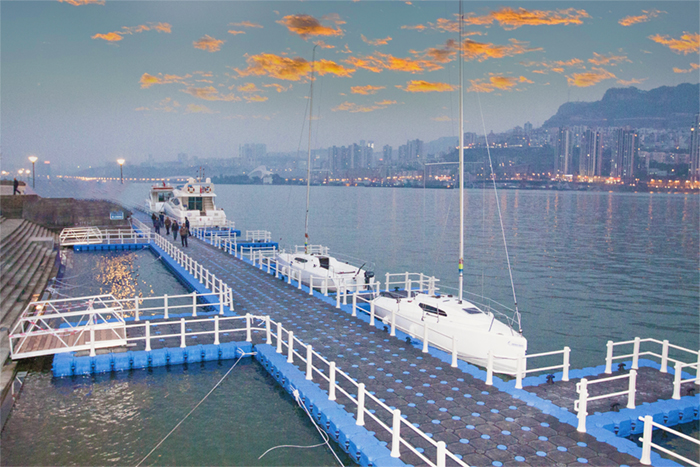Blogs
Why choose Floating docks?
-
Floating docks offer several advantages over traditional fixed docks:
-

-
1.Adaptability: Floating docks adjust to changing water levels, making them suitable for locations with fluctuating water depths or tidal movements. They can rise and fall with the water, reducing the risk of damage during extreme weather conditions.
-
2.Accessibility: They provide a stable platform for accessing boats and watercraft, regardless of water level changes. This makes them ideal for areas where water levels vary significantly.
-
3.Ease of Installation: Floating docks are typically easier and quicker to install compared to fixed docks. They often come in modular designs, allowing for flexibility in configuration and expansion.
-
4.Portability: Many floating dock systems are portable, allowing owners to move them to different locations or adjust their layout as needed. This feature can be beneficial for seasonal changes or if you move to a different waterfront property.
-
5.Low Maintenance: Floating docks usually require less maintenance compared to fixed docks, as they are less susceptible to damage from ice, debris, or shifting shorelines. Additionally, they don't suffer from corrosion caused by constant exposure to water.
-
6.Versatility: Floating docks can accommodate various watercraft sizes and shapes, from small kayaks to large boats. They can also be equipped with accessories such as ramps, ladders, and handrails to enhance functionality and safety.
-
7.Aesthetics: Floating docks can be designed to be visually appealing and blend well with their surroundings. They can also be constructed using environmentally friendly materials to minimize their impact on aquatic ecosystems.
CATEGORIES
LATEST NEWS
CONTACT US
Name: Jane Ng
Mobile:
Tel:+86 18819654250
Whatsapp:+86 18819654250
Email:jane@golddocks.com
Add:
